I keep creating new 3D models for KiCad. This time I made some 9mm potentiometers I use in all my projects.
ALPHA / ALPS 9mm single turn Potentiometers:
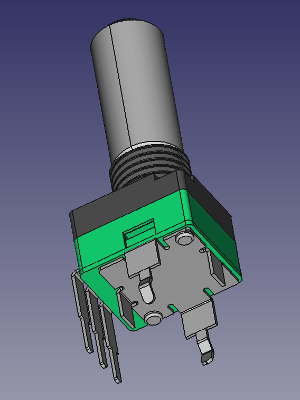
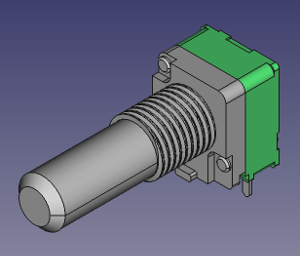
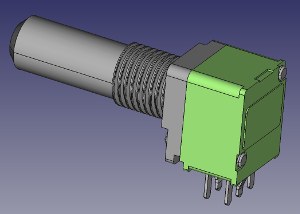
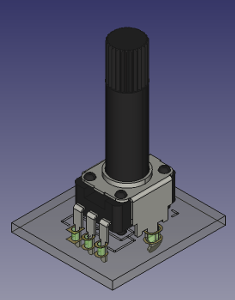
Download on Github : https://github.com/dhaillant/kicad-3dmodels/tree/master/potentiometers
I keep creating new 3D models for KiCad. This time I made some 9mm potentiometers I use in all my projects.
ALPHA / ALPS 9mm single turn Potentiometers:




Download on Github : https://github.com/dhaillant/kicad-3dmodels/tree/master/potentiometers
I’m updating all my current designs in order to incorporate WRL/STEP 3D models. They provide a convenient way to check mechanical issues, especially with cases and front panels.
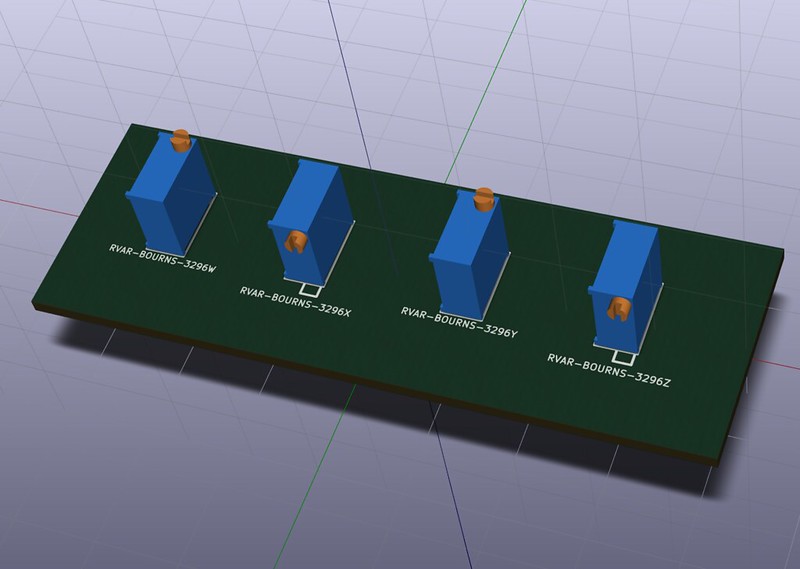
The Bourns 3296 3/8″ Trimpots are missing from the official KiCad 3D Library, so I decided to create my own.
It’s also a useful way to learn how to use FreeCAD and Github.
I’m also using kicad StepUp for model conversion, alignement and scaling.
You can find my 3D lib on GitHub here: https://github.com/dhaillant/kicad-3dmodels
KiCad has been updated to 4.0.x branch and it is strongly recommended to use it for all your new projects, instead of the good old BZR 4022 from 2013.
But sometimes, when you want to open an old design without too much trouble, it’s more convenient to just install the old version.
Continue reading How to install KiCad 2013-07-07 BZR 4022 on Ubuntu 64
In my previous entry on how to generate a BOM in KiCad 4, I wrote about “KiCad BOM Wizard” from hashdefineelectronics.com which can produce both CSV and HTML output.
Their website is well documented. But I wasn’t able at first to use that script on my Ubuntu (xubuntu 16.04).
Continue reading “KiCad BOM Wizard” error on Ubuntu 16.04
I’m switching from KiCad 3 to KiCad 4.
While version 3 offered a simple, quite un-customizable, CSV generated BOM, version 4 now only offers a raw XML export.
As KiCad website says:
BOM generation is extensible via Python scripts or XSLT, which allows many configurable formats.
“many configurable formats” This is great! It’s even possible to use any program or language other than Python and XSLT to translate the XML in whatever format pleases you.
The downside is, it requires additional steps before you can actually generate a BOM. It seems a bit complicated but it’s not. Read below.